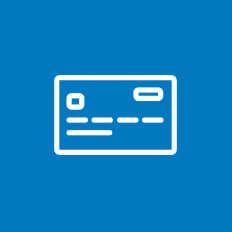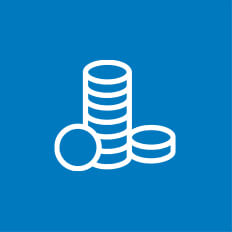Many Swiss prepaid cards have annual fees ranging between 35 and 50 francs per year. Other fees may apply in addition to annual fees, including fees for transactions in foreign currencies and fees for cash withdrawals. Foreign transaction fees are typically equal to between 1.2% and 1.75% of the amount transacted, depending on the card. This fee is typically clearly shown in card documentation. Currency exchange costs are less transparent, but are just as important in terms of what they cost you. Different card issuers use different rates, so the moneyland.ch accounts for the franc-to-euro exchange rate based on regular sampling.
Making cash withdrawals with most prepaid cards is expensive, as many have very high cash withdrawal fees. Typically, card issuers charge a fee equal to between 3.5% and 4% of the amount you withdraw, with a minimum fee of between 6 and 10 francs for each cash withdrawal – including very small withdrawals.
Another important cost to look at is the loading fee. You pay this fee every time you add money to your prepaid card account. For example, you may be charged 2 francs per loading, or 1% of the amount loaded with a minimum fee of 5 francs per loading.
moneyland.ch accounts for all the different card fees and lists them clearly in the cost breakdowns of comparison results.





